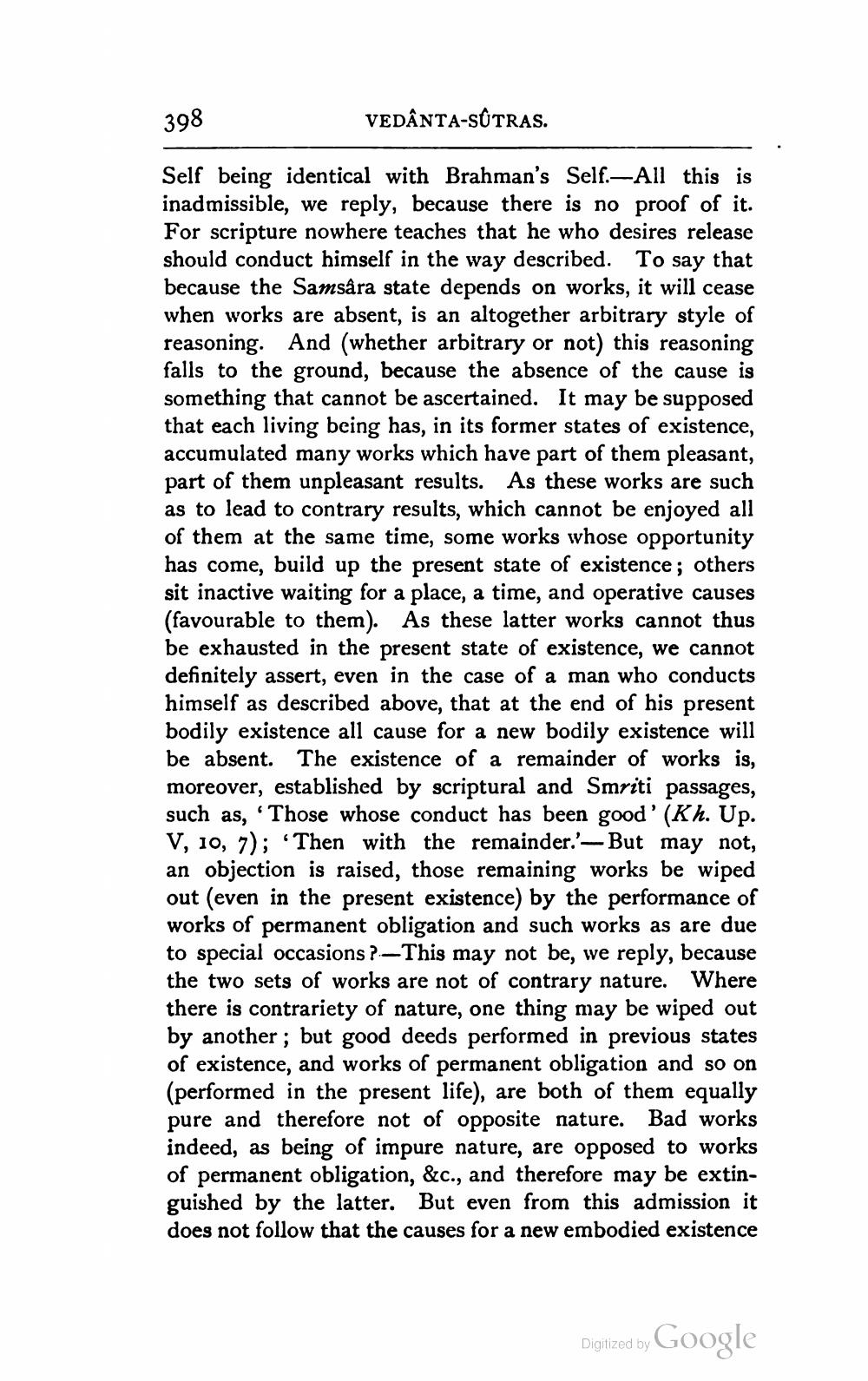________________
398
VEDÂNTA-SÛTRAS.
Self being identical with Brahman's Self.—All this is inadmissible, we reply, because there is no proof of it. For scripture nowhere teaches that he who desires release should conduct himself in the way described. To say that because the Samsara state depends on works, it will cease when works are absent, is an altogether arbitrary style of reasoning. And (whether arbitrary or not) this reasoning falls to the ground, because the absence of the cause is something that cannot be ascertained. It may be supposed that each living being has, in its former states of existence, accumulated many works which have part of them pleasant, part of them unpleasant results. As these works are such as to lead to contrary results, which cannot be enjoyed all of them at the same time, some works whose opportunity has come, build up the present state of existence; others sit inactive waiting for a place, a time, and operative causes (favourable to them). As these latter works cannot thus be exhausted in the present state of existence, we cannot definitely assert, even in the case of a man who conducts himself as described above, that at the end of his present bodily existence all cause for a new bodily existence will be absent. The existence of a remainder of works is, moreover, established by scriptural and Smriti passages, such as, 'Those whose conduct has been good' (Kh. Up. V, 10, 7); 'Then with the remainder.'- But may not, an objection is raised, those remaining works be wiped out (even in the present existence) by the performance of works of permanent obligation and such works as are due to special occasions ?.-This may not be, we reply, because the two sets of works are not of contrary nature. Where there is contrariety of nature, one thing may be wiped out by another; but good deeds performed in previous states of existence, and works of permanent obligation and so on (performed in the present life), are both of them equally pure and therefore not of opposite nature. Bad works indeed, as being of impure nature, are opposed to works of permanent obligation, &c., and therefore may be extinguished by the latter. But even from this admission it does not follow that the causes for a new embodied existence
Digitized by
Digitized by Google




